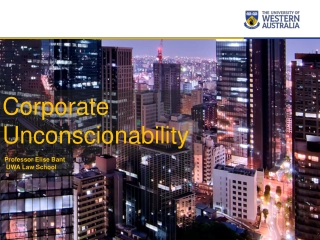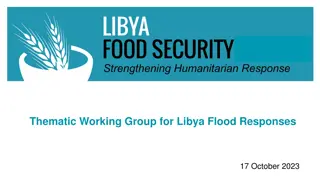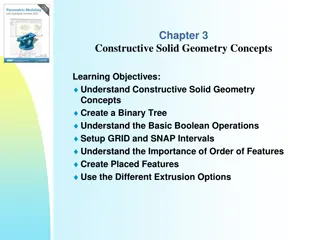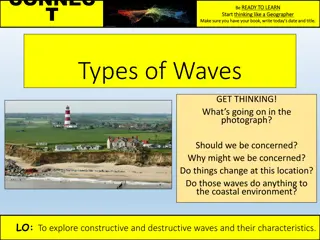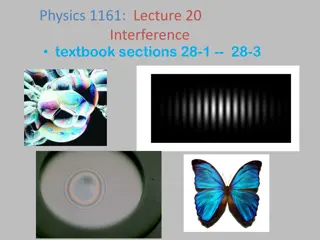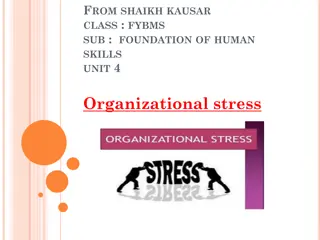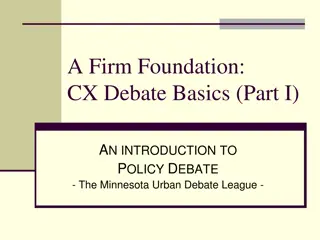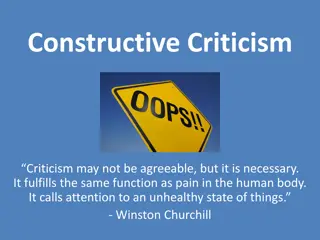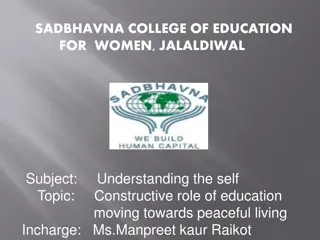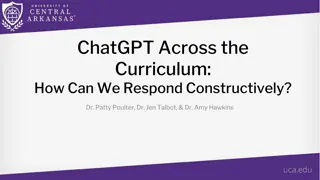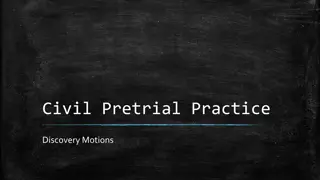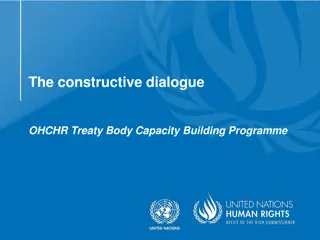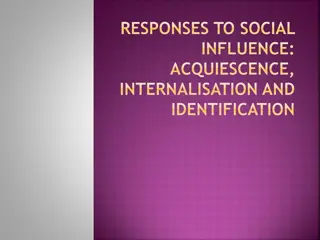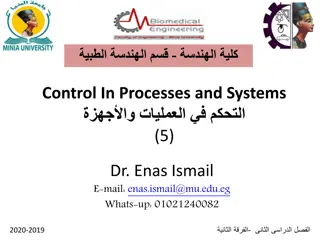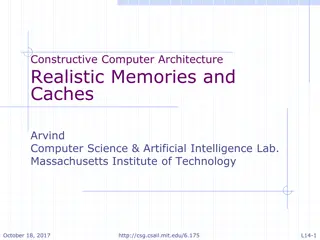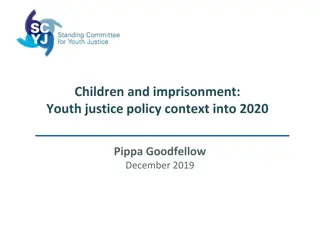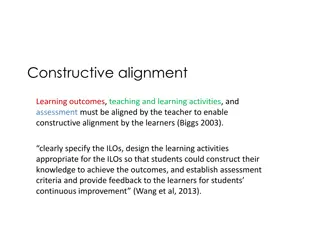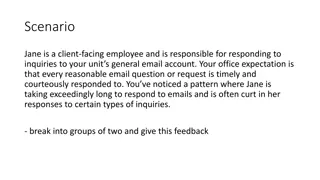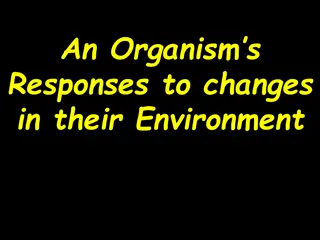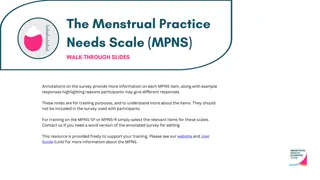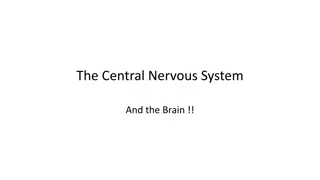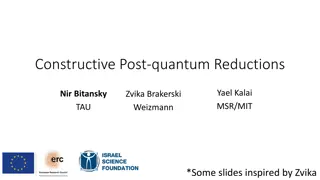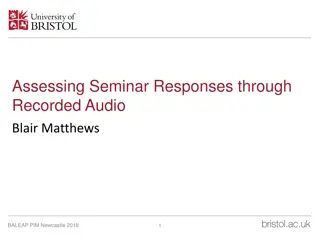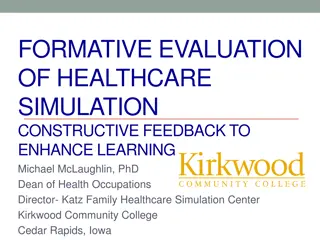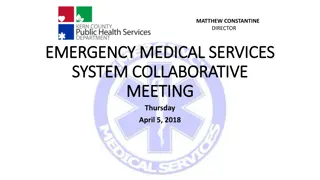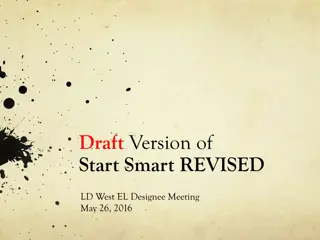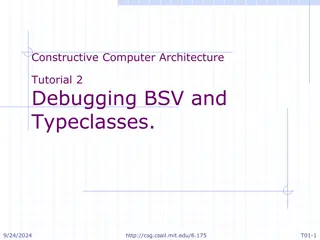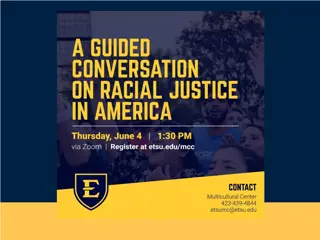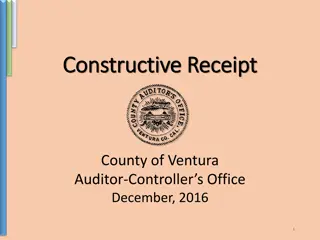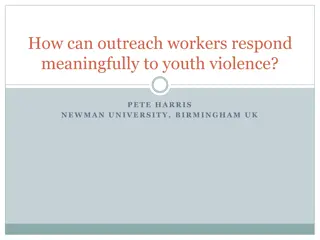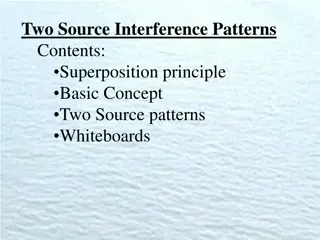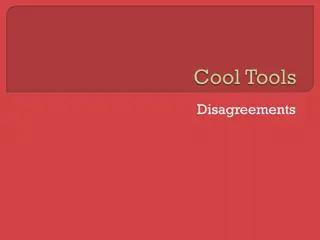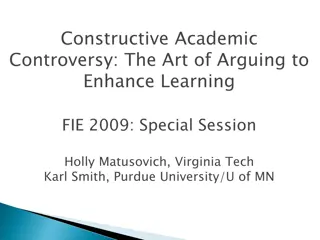Corporate Unconscionability
The concept of corporate unconscionability, including the exploitation of individuals in a special disadvantage. It explores the requirement of knowledge in cases of exploitation, such as actual knowledge, wilful blindness, recklessness, constructive knowledge, and constructive notice.
0 views • 18 slides
Empowering Students with Positive Attitudes
Discover the importance of positive attitudes among students and how teachers can promote optimism and constructive thinking. Learn how a positive mindset leads to happiness and success in life. Explore the ways positive attitude manifests and its benefits. Start each day with love and develop a con
0 views • 25 slides
Breathe 1-Month Survey 2021-2023 Head Start Responses Analysis
This report analyzes responses from the Breathe 1-Month Survey 2021-2023 in the Head Start program. It covers the roles of participants, frequency of material usage, usefulness of materials in tobacco education, and future likelihood of material use. Insights into the engagement and perceptions of t
0 views • 5 slides
Understanding Constructive Alignment in Higher Education
Constructive Alignment, introduced by John Biggs, is a foundational concept in UK higher education that focuses on aligning learning activities, assessment tasks, and intended learning outcomes within a program. By ensuring alignment, students are more likely to understand what is expected of them a
5 views • 20 slides
Thematic Working Group for Libya Flood Responses - Updates and Coordination Efforts
Thematic Working Group for Libya Flood Responses held a meeting on 17 October 2023 to discuss coordinated responses, targeting needs and damage assessments. Updates and documents published by partners after 10 October 2023 were shared, including reports from SRSG Abdoulaye Bathily and various agenci
0 views • 10 slides
Understanding Constructive Solid Geometry Concepts
Explore Constructive Solid Geometry (CSG) concepts including binary tree representation, Boolean operations, base feature selection in parametric modeling, and the importance of order in feature creation. Learn about CSG's role in representing solid models and its applications in the field of solid
1 views • 13 slides
Understanding Constructive and Destructive Waves in Geographical Context
Exploring the characteristics of constructive and destructive waves in geography. Learn how waves are formed, what happens when they reach the coast, and their impact on the coastal environment. Dive into the dynamics of wave movement and the distinctions between constructive and destructive waves.
0 views • 10 slides
Naval Live, Virtual, Constructive Learning Laboratory Overview
The Naval Live, Virtual, Constructive (LVC) Learning Laboratory, led by Mr. Christian Fitzpatrick, aims to provide a platform for early-stage research and development in a synthetic environment. With a strategic vision to build the future force, the lab focuses on integrated research, test, and eval
0 views • 17 slides
Exploring Wave Interference in Physics: Superposition, Constructive, and Destructive Interference
Delve into the fascinating world of wave interference in physics, from understanding the concept of superposition to identifying constructive and destructive interference patterns. Discover how light waves interact through different paths and sources to create coherent or incoherent light. Explore t
0 views • 37 slides
Understanding Organizational Stress: Impact on Performance and Coping Strategies
Stress in organizations is a state of imbalance between demands and capabilities, affecting individuals' emotional, cognitive, and physiological responses. Stress can be constructive or destructive, impacting job performance. Stress vulnerability is influenced by perceived control and autonomy level
0 views • 24 slides
An Introduction to Policy Debate: Understanding CX Debate Basics
Policy debate, also known as CX debate, involves structured arguments on policy topics. Teams of two students engage in constructive speeches and rebuttals, focusing on an annual resolution. Round structures, differences between constructive and rebuttal speeches, and debate strategies are key compo
0 views • 18 slides
Understanding Constructive Criticism in College
Constructive criticism plays a vital role in personal growth and development. It distinguishes between constructive and destructive feedback, highlighting the intent behind criticism and its significance in college settings. Embracing feedback positively can enhance one's learning experience and aca
1 views • 13 slides
Constructive Role of Education in Promoting Peaceful Living
Education plays a vital role in fostering peaceful living by promoting a constructive approach, holistic development, non-violence in classrooms, acceptance of mistakes, and positive reinforcement. This helps in creating a peaceful mindset and environment that contributes to the inner and outer grow
0 views • 10 slides
Effective Strategies for Constructive Responses Across the Curriculum
Responding constructively across the curriculum involves providing accurate information, avoiding shallow analyses, and maintaining parallel construction. This encompasses critiquing 5-paragraph essay structures, ensuring correct author attributions, and analyzing poems correctly. Writing to learn i
0 views • 14 slides
Discovery Motions in Civil Pretrial Practice
In civil pretrial practice, discovery motions play a crucial role when the opposing party fails to respond adequately to formal discovery requests. These motions include Motion to Compel, Motion to Compel Further, and Motion to Deem Facts Admitted. By filing these motions, parties can seek court ord
0 views • 17 slides
Understanding the Constructive Dialogue in Human Rights Context
The constructive dialogue is a key component of the OHCHR Treaty Body Capacity Building Programme, assisting treaty bodies in comprehensively assessing the human rights situation of a state party. This process involves various stakeholders, including state delegations and treaty body members, in str
1 views • 9 slides
Understanding Responses to Social Influence in Psychological Context
Social influence plays a significant role in shaping human behavior, with responses such as acquiescence, internalization, and identification affecting individual conformity to group norms. Conformity reflects matching attitudes, beliefs, and behaviors to group standards, which may lead to groupthin
0 views • 16 slides
Understanding Time Domain Dynamic Responses in Control Systems
In the field of control systems, analyzing time domain dynamic responses is essential for evaluating system performance. This involves studying transient and steady-state responses, as well as characteristics such as steady-state error. By examining these responses to standard input signals, insight
4 views • 30 slides
Constructive Computer Architecture Realistic Memories and Caches
Explore the realm of constructive computer architecture, realistic memories, and cache systems as presented by the Computer Science & Artificial Intelligence Lab at Massachusetts Institute of Technology. Delve into topics like 2-stage pipeline, magic memory models, and memory system views to gain in
0 views • 20 slides
Youth Justice Policy Trends and Changes since 2007
Recent trends in the youth justice system show a sharp decrease in the criminalisation and incarceration of children since 2007. This shift is attributed to increased diversion from the court system and a more tolerant approach towards youth crime. The focus is now on promoting positive outcomes and
4 views • 11 slides
Understanding Chemistry through Open-Ended Questions
The content provides a detailed assessment of student responses to open-ended chemistry questions related to hydrogen peroxide and its applications in teeth whitening gels. Various student answers are analyzed based on their understanding of the chemistry concepts involved, with explanations given f
1 views • 18 slides
Constructive Alignment in Teaching and Learning: A Comprehensive Guide
Constructive alignment emphasizes the importance of aligning learning outcomes, teaching activities, and assessments to enhance student learning. By clearly specifying learning outcomes, designing appropriate activities, and establishing assessment criteria with feedback, educators can foster constr
0 views • 6 slides
Effective Feedback Practices for Client-Facing Employees
Explore the importance of timely and courteous email responses in a client-facing role and learn how to provide constructive feedback to improve communication skills. Discover the benefits of active listening, tips for better engagement, and strategies for delivering positive feedback effectively. E
0 views • 8 slides
Organisms' Responses to Environmental Changes
Organisms demonstrate responses to changes in their environment through stimuli and reactions. These responses can be internal or external, leading to behaviors such as seeking food, avoiding danger, or adjusting growth patterns. Examples include animals seeking food when hungry or plants growing to
3 views • 15 slides
Enhancing Understanding of MPNS Items Through Annotations and Example Responses
Gain deeper insights into each MPNS item through detailed annotations and example responses, shedding light on potential reasons for varied participant responses. These resources are ideal for training purposes to improve comprehension of the MPNS-SF and MPNS-R scales. Contact us for editable versio
0 views • 37 slides
Understanding the Central Nervous System and Brain
The central nervous system plays a crucial role in enabling organisms to respond to stimuli and adapt to changes in the environment. Comprising receptors, neurones, and effectors, this system facilitates the detection of stimuli, transmission of messages, and appropriate responses. Neurones, includi
0 views • 18 slides
Exploring Post-Quantum Cryptography and Constructive Reductions
Delve into the realm of post-quantum cryptography through an insightful journey of constructive reductions, rethinking cryptography assumptions, and the relationship between classical and post-quantum regimes. Discover the challenges, advancements, and goals in the quest for durable cryptographic al
1 views • 21 slides
Seminar Responses Assessment Method Using Recorded Audio
Seminar responses are challenging to assess due to group dynamics. A novel approach involves students watching seminar excerpts and recording responses as if present. The method is practical and aids in assessing language skills effectively. This study delves into the practicability and language ass
0 views • 17 slides
Enhancing Healthcare Simulation Through Constructive Feedback
Explore the principles and benefits of healthcare simulation, focusing on formative evaluation and constructive feedback to improve learning outcomes. Delve into the role of formative assessment tools, TeamSTEPPS model, and Mayo High Performance Teamwork Scale in simulation scenarios. Discover the s
0 views • 37 slides
Effect of Efgartigimod on Humoral Vaccine Responses in Patients with Autoimmune Diseases
The study explores the impact of Efgartigimod, a Neonatal Fc Receptor blocker, on humoral vaccine responses in patients with autoimmune diseases. It discusses how immunosuppressive therapies used in autoimmune disorders may affect susceptibility to infections and impair vaccine immunogenicity, highl
0 views • 18 slides
Emergency Medical Services System Collaborative Meeting Highlights
Highlights from the Emergency Medical Services System Collaborative Meeting on April 5, 2018, including introductions, ReddiNet bed availability for MCI response, monthly notices and responses, year-to-date alerts and responses, patient distribution, bed availability reporting for February and March
0 views • 66 slides
Start Smart Revised: Constructive Conversation Skills Workshop
Dive into the revised version of Start Smart to enhance students' Constructive Conversation skills through collaborative activities and discussions. Explore the differences between the original and revised lessons, share valuable insights, and provide feedback for continuous improvement.
1 views • 9 slides
An Overview of Debate: Propositions, Teams, and Formats
Debate is a regulated discussion between two matched sides discussing a proposition, with the affirmative arguing for change and the negative defending the status quo. The standard debate format involves constructive arguments followed by rebuttals from both sides. The roles in a debate include the
0 views • 47 slides
Debugging Techniques in Constructive Computer Architecture
Explore debugging methods in constructive computer architecture tutorial sessions, focusing on debugging BSV code, typeclasses, and functional style. Learn how to use print and display statements effectively, handle conflicts, and identify and fix common bugs. Dive into the significance of ways to d
0 views • 40 slides
Creating an Inclusive Dialogue: Stories, Support, and Change
Students are invited to share their stories and emotions following recent hateful events, aiming to understand diverse perspectives and responses. University resources, group norms, and counseling services are highlighted for fostering a more inclusive society. Guidance on engaging in meaningful dia
0 views • 10 slides
Understanding Constructive Receipt in Taxation
The doctrine of constructive receipt in taxation dictates that income, even if not physically received, is taxable when made available to the taxpayer. This principle applies to various scenarios such as interest credited to accounts and compensation for services rendered. Failure to recognize const
0 views • 19 slides
Effective Strategies for Responding to Youth Violence: Insights from Pete Harris, Newman University, Birmingham, UK
Outreach workers can respond meaningfully to youth violence by understanding the various dimensions of violence, adopting a model of meaningful responses (Existential, Structural, Cultural, Personal), and engaging at both the individual (P-level) and community (C-level) levels. Strategies include re
0 views • 16 slides
Understanding Two-Source Interference Patterns
Dive into the fascinating world of two-source interference patterns with the superposition principle, constructive and destructive interference concepts, and demonstrations illustrating how overlapping waves interact. Explore scenarios like people talking simultaneously and ripples on a pond to gras
0 views • 31 slides
Effective Strategies for Handling Disagreements
Handling disagreements effectively involves listening, using respectful language, avoiding heated responses, focusing on understanding, and staying calm and rational. It's essential to maintain respect, listen actively, express disagreements constructively, and manage conversations maturely, even wh
0 views • 10 slides
Enhancing Learning Through Constructive Academic Controversy
Constructive Academic Controversy (CAC) is an educational approach combining cooperative learning with structured intellectual conflict to stimulate problem-solving and reasoned judgment. This methodology helps students develop teamwork, communication, and conflict resolution skills essential for en
0 views • 17 slides
